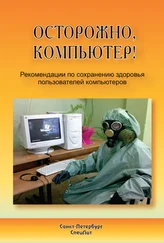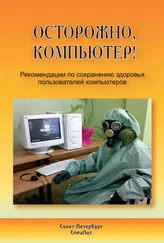Глава 3. Мысли, которые исцеляют: о самовнушении
1. Rausch V. Cholecystectomy with self-hypnosis. Am J Clin Hypn. 1980;22(3):124–129. doi: 10.1080/00029157.1980.10403216.
2. Crum A. J., Corbin W. R., Brownell K. D., Salovey P. Mind over milkshakes: mindsets, not just nutrients, determine ghrelin response. Health Psychol. 2011;30(4):424–431. doi: 10.1037/a0023467.
3. Lagopoulos J., Xu J., Rasmussen I., Vik A., et al. Increased Theta and Alpha EEG Activity During Nondirective Meditation. The Journal of Alternative and Complementary Medicine.Nov 2009.1187–1192. doi: 10.1089/acm.2009.0113.
4. Уманский С. В. Самогипноз. Практическое пособие для начинающих. Пси-фактор. https://psyfactor.org/lib/selfhipnosis.htm.
5. Bo S., Rahimi F., Goitre I., et al. Effects of Self-Conditioning Techniques (Self-Hypnosis) in Promoting Weight Loss in Patients with Severe Obesity: A Randomized Controlled Trial. Obesity (Silver Spring). 2018;26(9):1422–1429. doi: 10.1002/oby.22262.
6. Thompson T., Terhune D. B., Oram C., et al. The effectiveness of hypnosis for pain relief: A systematic review and meta-analysis of 85 controlled experimental trials. Neurosci Biobehav Rev. 2019;99:298–310. doi: 10.1016/j.neubiorev.2019.02.013.
7. Brugnoli M. P., Pesce G., Pasin E., Basile M. F., Tamburin S., Polati E. The role of clinical hypnosis and self-hypnosis to relief pain and anxiety in severe chronic diseases in palliative care: a 2-year long-term follow-up of treatment in a nonrandomized clinical trial. Ann Palliat Med. 2018;7(1):17–31. doi: 10.21037/apm.2017.10.03.
8. Barton D. L., Brooks T. M., Cieslak A., et al. Phase II randomized controlled trial of hypnosis versus progressive muscle relaxation for body image after breast or gynecologic cancer. Breast Cancer Res Treat. 2019;178(2):357–365. doi: 10.1007/s10549–019–05395–6.
9. Pekala R. J., Maurer R., Kumar V. K., et al. Self-hypnosis relapse prevention training with chronic drug/alcohol users: effects on self-esteem, affect, and relapse. Am J Clin Hypn. 2004;46 (4):281–297. doi: 10.1080/00029157.2004.10403613.
10. Potter G. Intensive therapy: utilizing hypnosis in the treatment of substance abuse disorders. Am J Clin Hypn. 2004;47(1):21–28. doi: 10.1080/00029157.2004.10401472.
11. Krouwel M., Jolly K., Greenfield S. How do people with refractory irritable bowel syndrome perceive hypnotherapy? Qualitative study. Complement Ther Med. 2019;45:65–70. doi: 10.1016/j.ctim.2019.05.020.
12. Lynn S. J., Malakataris A., Condon L., Maxwell R., Cleere C . Post-traumatic stress disorder: cognitive hypnotherapy, mindfulness, and acceptance-based treatment approaches. Am J Clin Hypn. 2012;54(4):311–330. doi: 10.1080/00029157.2011.645913.
13. Golden W. L. Cognitive hypnotherapy for anxiety disorders. Am J Clin Hypn. 2012; 54(4):263–274. doi: 10.1080/00029157.2011.650333.
14. Alladin A. Evidence-based hypnotherapy for depression. Int J Clin Exp Hypn. 2010;58(2):165–185. doi: 10.1080/00207140903523194.
15. Graci G. M., Hardie J. C. Evidenced-based hypnotherapy for the management of sleep disorders. Int J Clin Exp Hypn. 2007;55(3):288–302. doi: 10.1080/00207140701338662.
16. Landry M., Stendel M., Landry M., Raz A. Hypnosis in palliative care: from clinical insights to the science of self-regulation. Ann Palliat Med 2018;7(1):125–135. doi: 10.21037/apm.2017.12.05.
17. Chester S. J., Tyack Z., De Young A., et al. Efficacy of hypnosis on pain, wound-healing, anxiety, and stress in children with acute burn injuries: a randomized controlled trial. Pain. 2018;159(9):1790–1801. doi: 10.1097/j.pain.0000000000001276.
18. Lynn, S. J., Rhue, J. W., & Weekes, J. R. (1990). Hypnotic involuntariness: A social cognitive analysis. Psychological Review, 97(2), 169–184. doi: 10.1037/0033–295X.97.2.169.
Глава 4. Позитивное мышление
1. Rein G., Atkinson M., McCraty R. The Physiological and Psychological Effects of Compassion and Anger. Journal of Advancement in Medicine. 1995; 8(2): 87–105. https://www.heartmath.org/research/research-library/basic/physiological-and-psychological-effects-of-compassion-and-anger/.
2. Segerstrom S. C., Sephton S. E. Optimistic expectancies and cell-mediated immunity: the role of positive affect. Psychol Sci. 2010;21(3):448–455. doi: 10.1177/0956797610362061.
3. Zahrt O. H., Crum A J. Perceived physical activity and mortality: Evidence from three nationally representative U.S. samples. Health Psychol. 2017;36(11):1017–1025. doi: 10.1037/hea0000531.
4. Giltay E. J., Kamphuis M. H., Kalmijn S., Zitman F. G., Kromhout D. Dispositional optimism and the risk of cardiovascular death: the Zutphen Elderly Study. Arch Intern Med. 2006;166(4):431–436. doi: 10.1001/archinte.166.4.431.
5. Szondy M. Optimizmus és immunfunkciók. Mentálhigiéné és Pszichoszomatika, 5 (4). 2004. doi: 10.1556/Mental.5.2004.4.2.
6. Goodin B. R., Kronfli T., King C. D., Glover T. L., Sibille K., Fillingim R. B. Testing the relation between dispositional optimism and conditioned pain modulation: does ethnicity matter? J Behav Med. 2013;36(2):165–174. doi: 10.1007/s10865–012–9411–7.
7. Geers A. L., Wellman J. A., Fowler S. L., Helfer S. G., France C. R. Dispositional optimism predicts placebo analgesia. J Pain. 2010;11(11):1165–1171. doi: 10.1016/j.jpain.2010.02.014.
8. Hernandez R., Vu T. T., Kershaw K. N., et al. The Association of Optimism with Sleep Duration and Quality: Findings from the Coronary Artery Risk and Development in Young Adults (CARDIA) Study. Behav Med. 2020;46(2):100–111. doi: 10.1080/08964289.2019.1575179.
9. Scheier M. F., Matthews K. A., Owens J. F., et al. Optimism and rehospitalization after coronary artery bypass graft surgery. Arch Intern Med. 1999;159(8):829–835. doi: 10.1001/archinte.159.8.829.
10. Lee L. O., James P., Zevon E. S., et al. Optimism is associated with exceptional longevity in 2 epidemiologic cohorts of men and women. Proceedings of the National Academy of Sciences. Sep 2019, 116 (37) 18357–18362. doi: 10.1073/pnas.1900712116.
11. Carver C. S., Scheier M. F. Dispositional optimism. Trends Cogn Sci. 2014;18(6):293–299. doi: 10.1016/j.tics.2014.02.003.
12. Srivastava S., McGonigal K. M., Richards J. M., Butler E. A., Gross J. J. Optimism in close relationships: How seeing things in a positive light makes them so. J Pers Soc Psychol. 2006;91(1):143–153. doi: 10.1037/0022–3514.91.1.143.
13. Kwak S., Kim H., Chey J., YoumY. Feeling How Old I Am: Subjective Age Is Associated With Estimated Brain Age. Front Aging Neurosci. 2018;10:168. Published 2018 Jun 7. doi: 10.3389/fnagi.2018.00168.
14. Whitfield J. B., Zhu G., Landers J. G. et al. Pessimism is associated with greater all-cause and cardiovascular mortality, but optimism is not protective. Sci Rep 10, 12609 (2020). doi: 10.1038/s41598–020–69388-y.
15. Malouff J. M., Schutte N. S. Can psychological interventions increase optimism? A meta-analysis. The Journal of Positive Psychology 12(6):1–11 (2016). doi: 10.1080/17439760.2016.1221122.
16. Meevissen Y. M., Peters M. L., Alberts H. J. Become more optimistic by imagining a best possible self: effects of a two week intervention. J Behav Ther Exp Psychiatry. 2011;42(3):371–378. doi: 10.1016/j.jbtep.2011.02.012.
17. van Middendorp H., Kox M., Pickkers P., Evers A. W. The role of outcome expectancies for a training program consisting of meditation, breathing exercises, and cold exposure on the response to endotoxin administration: a proof-of-principle study. Clin Rheumatol. 2016;35(4):1081–1085. doi: 10.1007/s10067–015–3009–8.
Читать дальше
Конец ознакомительного отрывка
Купить книгу


![Шон Янг - Привычки на всю жизнь [Научный подход к формированию устойчивых привычек]](/books/23939/shon-yang-privychki-na-vsyu-zhizn-nauchnyj-podhod-k-fo-thumb.webp)









